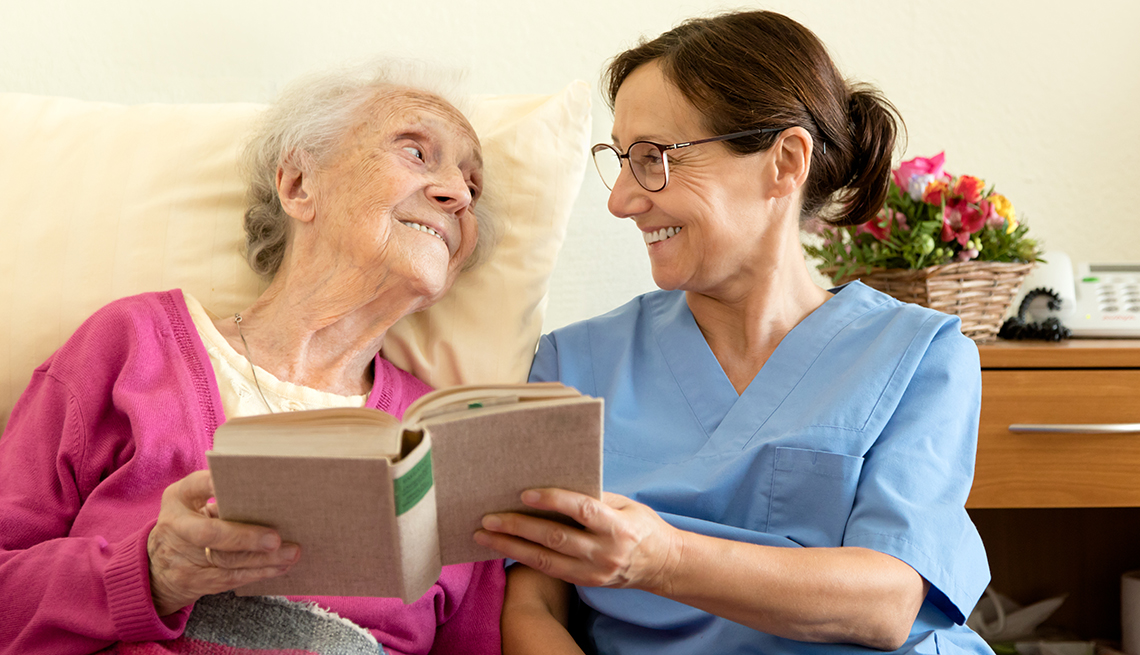
What doctors learned after becoming caregivers
- Select a language for the TTS:
- UK English Female
- UK English Male
- US English Female
- US English Male
- Australian Female
- Australian Male
- Language selected: (auto detect) - EN
Play all audios:

LESSONS LEARNED: DO NOT LEAVE YOUR LOVED ONE ALONE IN THE HOSPITAL. Patients, especially older ones, often do not absorb what doctors say, and it’s easy for things to get lost in the
shuffle. If possible, stay with them in the hospital (or assign shifts, if you have backup), especially during the day when doctors make their rounds. “You want to be there to ask questions
and provide information,” Mullin says. ASK TOUGH QUESTIONS. Research your loved one’s illness, take notes on what providers say and listen to your instincts. Even if you don’t have a medical
background, your knowledge and observations are valuable, Mullin says. “If they are getting facts wrong or something seems off, ask to talk to the attending doctor,” he says. “Things fall
through the cracks, and one bad error can have a domino effect.” WHAT CHANGED IN HIS OWN PRACTICE: As a result of his experiences caring for his parents, Mullin makes even more certain that
family caregivers fully understand the plan of care, outcomes of tests and the treatments required. “I know now that it’s a team effort, and the family and caregivers are critical members of
the team,” he says. “We are treating not only the person’s biological condition, but the person as a whole — and that means engaging their support team.” Teah Bayless, D.O., a geriatrics
specialist with Duke Family Medicine, experienced caregiving for the first time last year after her father had a knee replacement. He traveled to Durham, N.C., for the procedure and recovery
because Bayless lives and practices there. Bayless, who works full time and had 6-year-old triplets at the time, found herself consumed with caregiving. “My focus was literally on someone
else — my patients, my husband, my children or my dad —all of the time,” she says. “I did not attend to my own needs at all: I didn’t sleep well, eat well or exercise.” Bayless was also
caught off guard by the emotional drain of caregiving: “Seeing my normally active, independent father incapacitated and in pain was hard.” LESSONS LEARNED: TALK ABOUT EXPECTATIONS. In
hindsight, Bayless wishes she had talked to her father about how much help and attention he expected. “I felt like I needed to be with my dad in rehab every day, and to meet his every need
while he was here,” she says. “Had I talked to him in advance, he probably would have been perfectly ok if I didn’t visit as often. We could have made a plan that would have made it easier
for me to set aside time to take care of my own needs.” SEEK OUT HELP. Bayless felt run down after only three weeks of caregiving. Over a longer period, she knows her own health would have
suffered. “In many cases, it’s worth the sacrifice to pay a professional caregiver to relieve you sometimes,” she says. You can also tap community resources such as adult day programs,
nonprofits and social service agencies. WHAT CHANGED IN HER OWN PRACTICE: “I have more empathy for caregivers and I work harder now to ensure they feel supported and have the resources and
tools to do their job.”
